*Thread** The evasion of police accountability is supported by @OIPRD_BDIEP . An independent civilian oversight that manages and oversees all complaints about police in Ont. It currently does not have the full capacity to investigate all complaints internally & majority of the 1/
More from Government
Cannon
44
....heard around the world
NG - High Alert https://t.co/lfeSiUCCRB
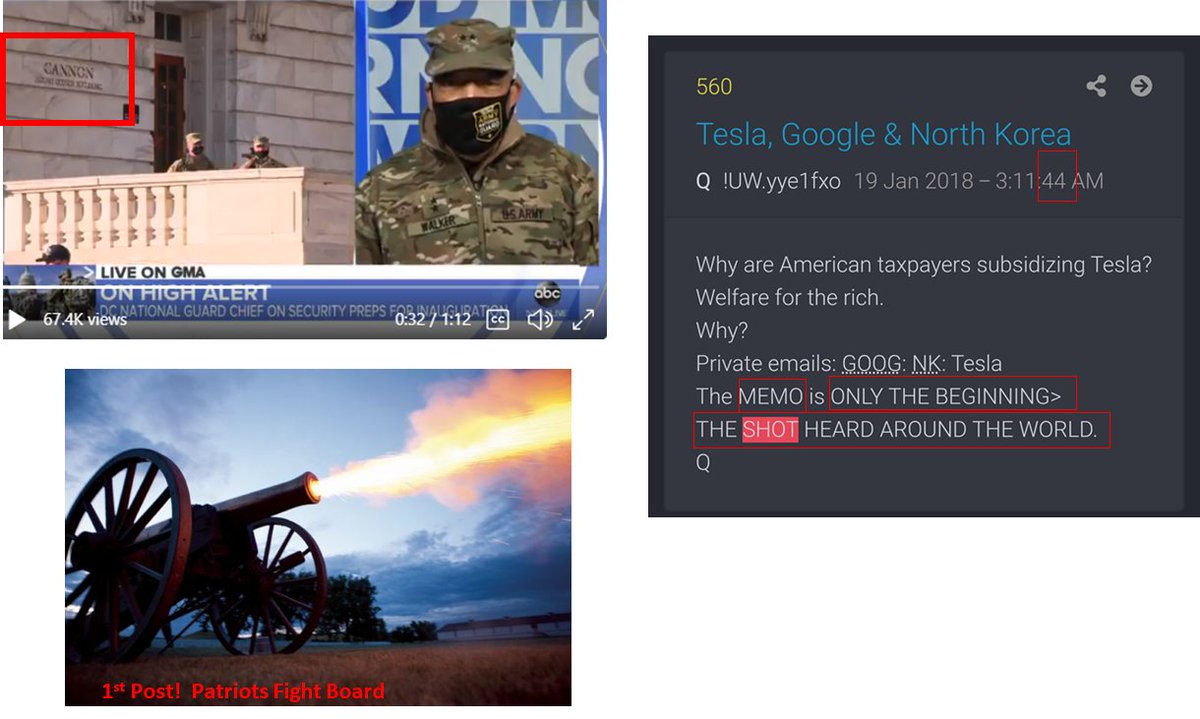
\U0001f4a5 BOOM \U0001f4a5
— R\u0113d.P\u012bll.Ph\u0101rm\u0101c\u012bst (@Red_Pill_Pharma) January 18, 2021
30 secs in - what do I hear?
\u2018Peaceful transition to military power\u2019
\U0001f1fa\U0001f1f8 MILITARY IS THE ONLY WAY \U0001f1fa\U0001f1f8 pic.twitter.com/9NPMT7N7Qy
We Will Never Forget
44
Stage is set
https://t.co/h6G3LCevII
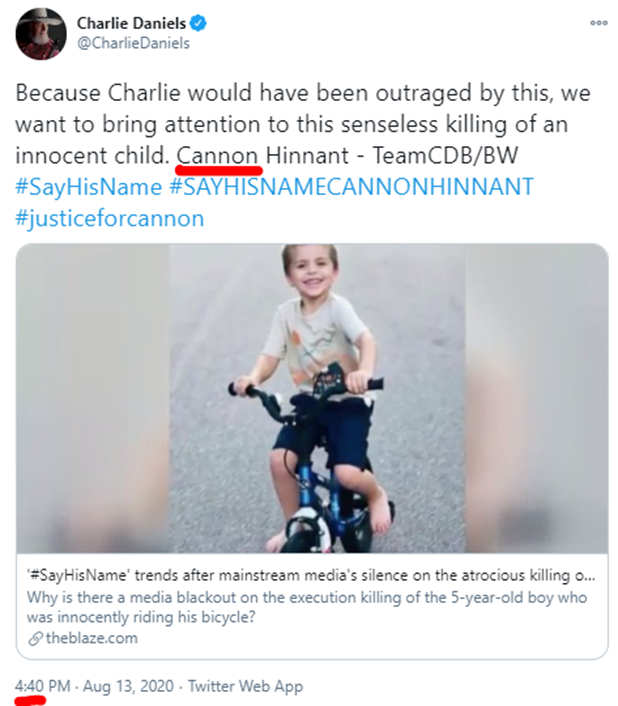
The stage is set. Staged.
— JeLove (@LovesTheLight) November 7, 2020
Where? (the) Delaware.
10:44
Purple
First graphic in 98https://t.co/PKHlxp0rzS pic.twitter.com/XCx6pVQTHx
Following the 44 trail of breadrumbs
https://t.co/PcX0uKUEUW
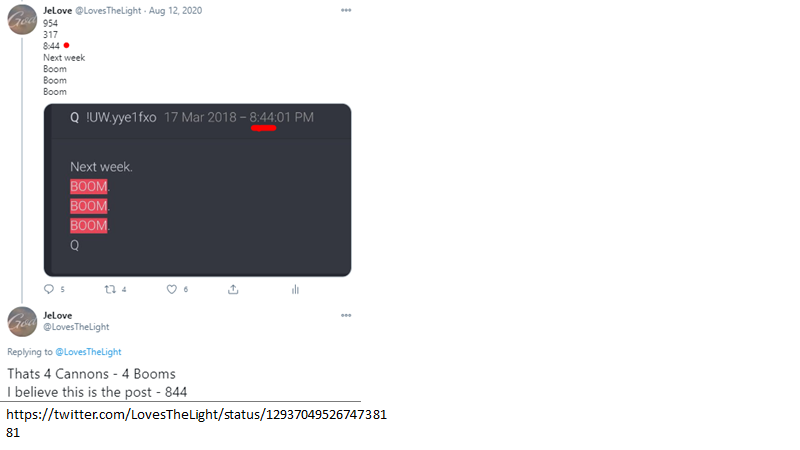
Boom, Boom, Boom pic.twitter.com/ZcZXAgL0Qf
— JeLove (@LovesTheLight) August 13, 2020
Here's the text:
First, it would ban county elections offices from receiving outside funding to run elections.
This, after CTCL and Schwarzenegger gave money to both D and R counties in 2020 to help with pandemic.
(although I wonder if the county gov't could take the grant, then disburse?)

Next, it outlines ways that poll workers can serve adjacent counties (currently, you can only work in your county of residence)
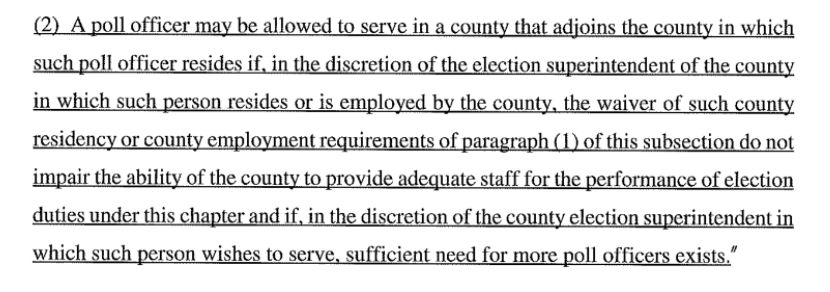
This section mirrors an SOS-backed bill from 2020 that would require more machines, more poll workers or splitting up precincts if a 2,000+ person precinct has lines of more than an hour.
More on that proposal: https://t.co/7BfIcrI81q
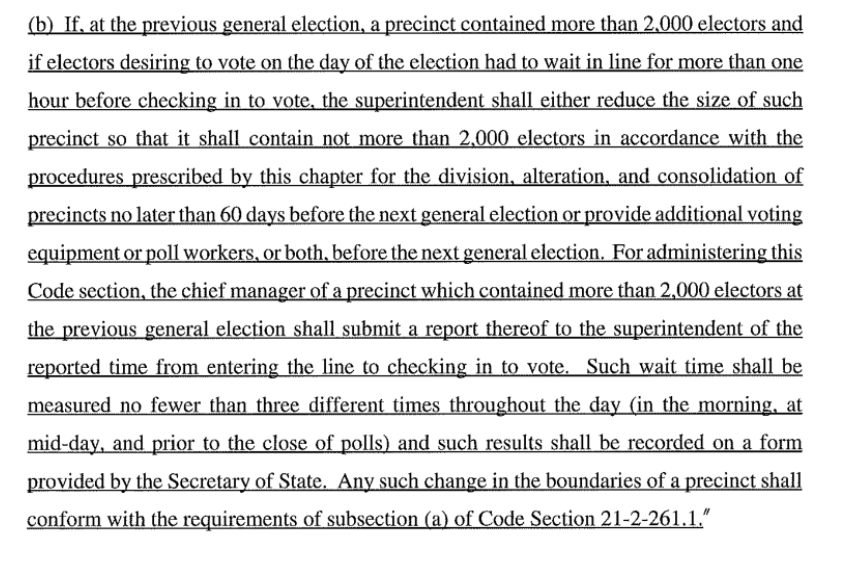
This is an anti-Fulton County mobile voting bus section
(although I still believe that it's using the wrong code section since the busses are for *early* voting and fall under 21-2-382)
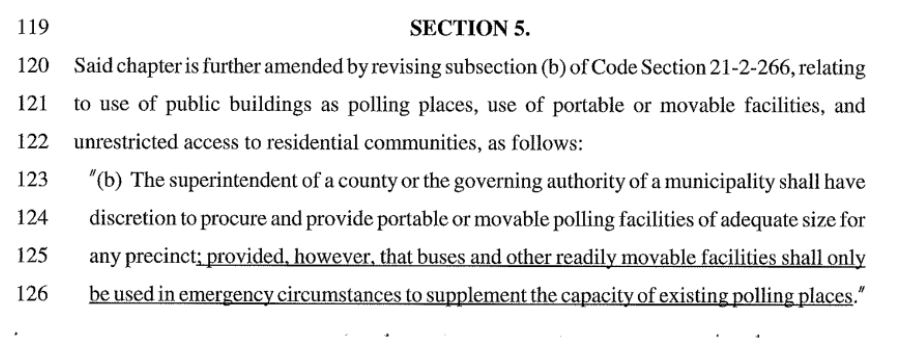
This will go pretty in depth FYI.
I couldn't possibly guess why Six Days in Fallujah is being revived at a time when US army recruitment is at an all time low.
— Daniel Ahmad (@ZhugeEX) February 11, 2021
This reboot is from the same people that worked with the FBI and CIA on training systems and is basing its game on excusing US war crimes. pic.twitter.com/5H8vVqKh9s
The core reason why I'm doing this thread is because:
1. It's clear the developers are marketing the game a certain way.
2. This is based on something that actually happened, a war crime no less. I don't have issues with shooter games in general ofc.
Firstly, It's important to acknowledge that the Iraq war was an illegal war, based on lies, a desire for regime change and control of resources in the region.
These were lies that people believed and still believe to this day.
It's also important to mention that the action taken by these aggressors is the reason there was a battle in Fallujah in the first place. People became resistance fighters because they were left with nothing but death and destruction all around them after the illegal invasion.
This is where one of the first red flags comes up.
The game is very much from an American point of view, as shown in the description.
When it mentions Iraqi civilians, it doesn't talk about them as victims, but mentions them as being pro US, fighting alongside them.
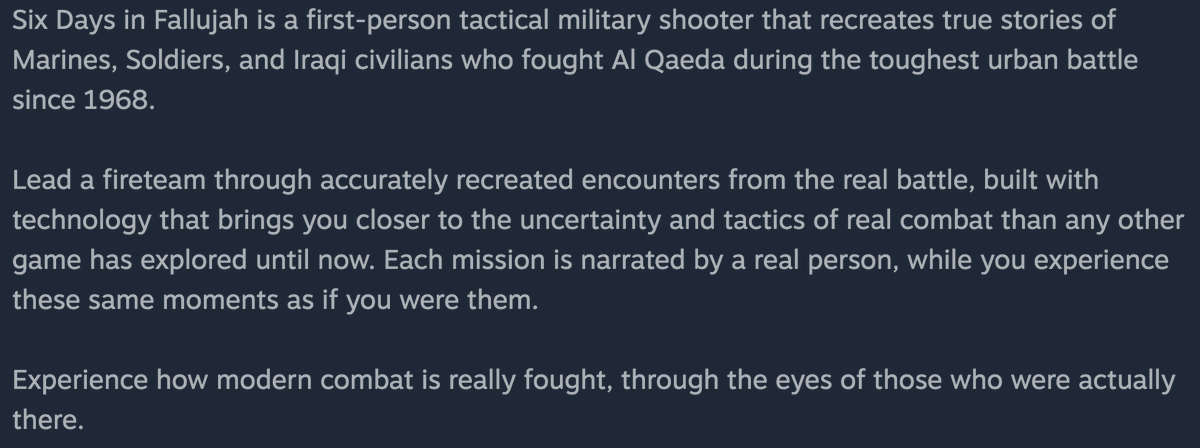
You May Also Like
Like company moats, your personal moat should be a competitive advantage that is not only durable—it should also compound over time.
Characteristics of a personal moat below:
I'm increasingly interested in the idea of "personal moats" in the context of careers.
— Erik Torenberg (@eriktorenberg) November 22, 2018
Moats should be:
- Hard to learn and hard to do (but perhaps easier for you)
- Skills that are rare and valuable
- Legible
- Compounding over time
- Unique to your own talents & interests https://t.co/bB3k1YcH5b
2/ Like a company moat, you want to build career capital while you sleep.
As Andrew Chen noted:
People talk about \u201cpassive income\u201d a lot but not about \u201cpassive social capital\u201d or \u201cpassive networking\u201d or \u201cpassive knowledge gaining\u201d but that\u2019s what you can architect if you have a thing and it grows over time without intensive constant effort to sustain it
— Andrew Chen (@andrewchen) November 22, 2018
3/ You don’t want to build a competitive advantage that is fleeting or that will get commoditized
Things that might get commoditized over time (some longer than
Things that look like moats but likely aren\u2019t or may fade:
— Erik Torenberg (@eriktorenberg) November 22, 2018
- Proprietary networks
- Being something other than one of the best at any tournament style-game
- Many "awards"
- Twitter followers or general reach without "respect"
- Anything that depends on information asymmetry https://t.co/abjxesVIh9
4/ Before the arrival of recorded music, what used to be scarce was the actual music itself — required an in-person artist.
After recorded music, the music itself became abundant and what became scarce was curation, distribution, and self space.
5/ Similarly, in careers, what used to be (more) scarce were things like ideas, money, and exclusive relationships.
In the internet economy, what has become scarce are things like specific knowledge, rare & valuable skills, and great reputations.
















